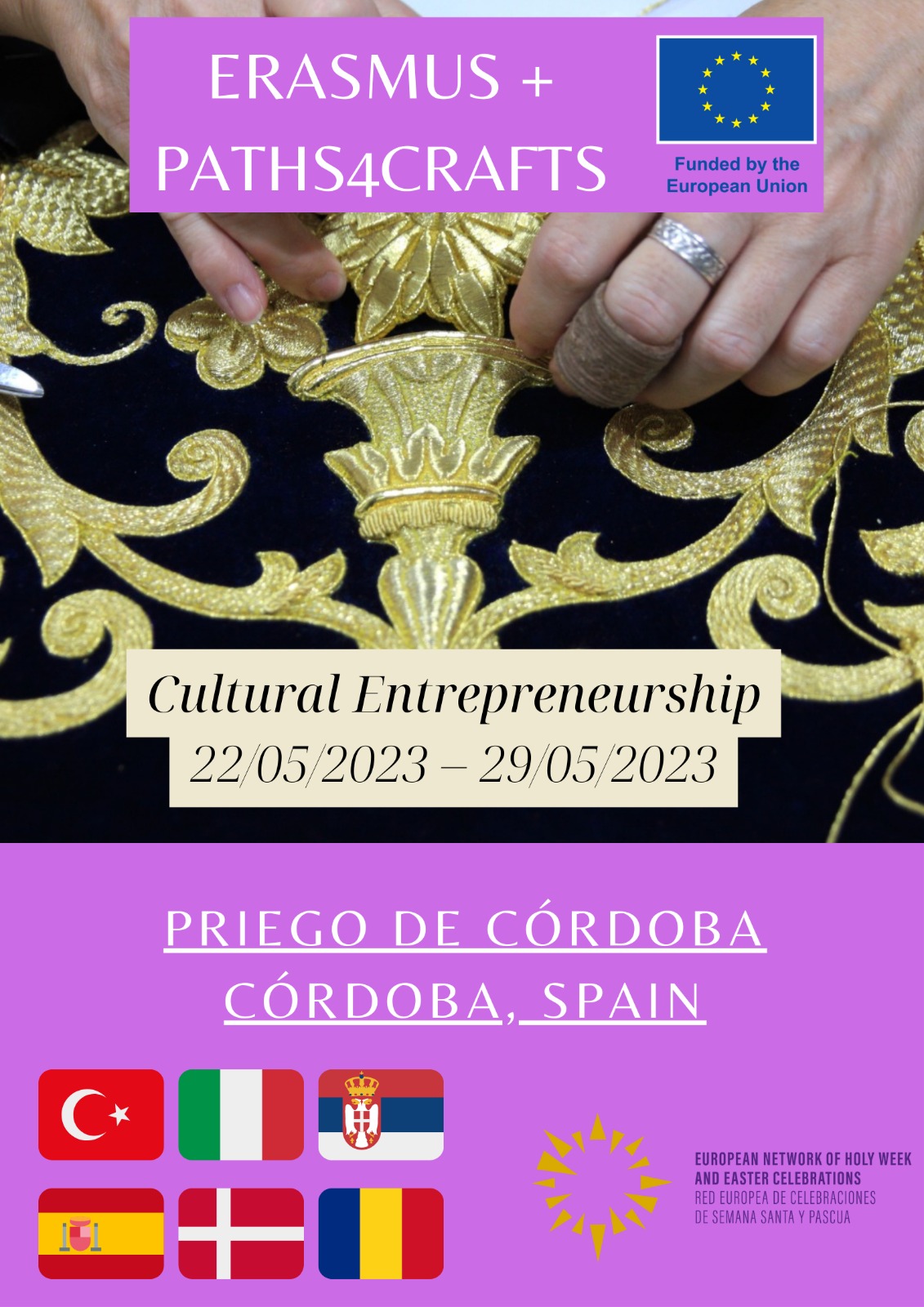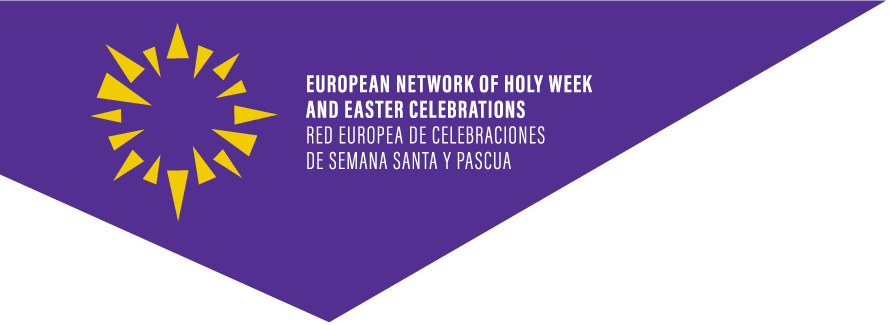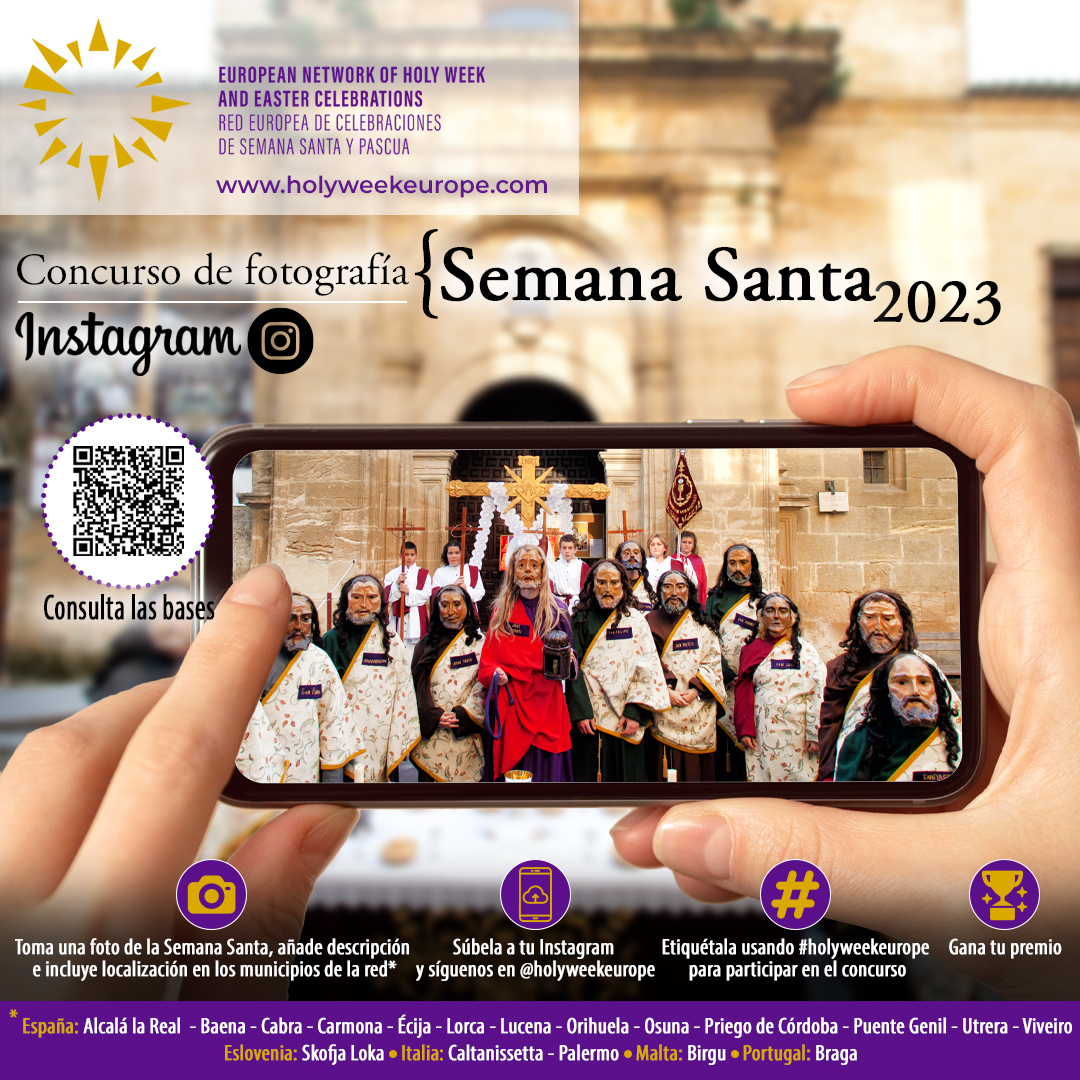
An exchange program for young Europeans allows them to delve into the crafts of Holy Week
- The programme, called ‘Paths4Crafts: Cultural entrepreneurship’, is promoted by the European Network of Holy Week and Easter Celebrations
- It takes place in Priego de Córdoba until next Sunday and includes visits to artisan workshops in Utrera, Cabra and Lucena
- Young people from Spain, Turkey, Romania, Serbia, Croatia, Italy, Denmark and Slovenia participate
23.05.2023.- The European Network of Holy Week and Easter Celebrations is developing, from today until next Sunday, a cultural exchange project within the framework of the Erasmus+ program in which some thirty young people from Spain, Turkey, Romania, Serbia, Croatia, Italy, Denmark and Slovenia participate.
Under the title ‘Paths4Crafts: Cultural entrepreneurship’, the project centers its activity in Priego de Córdoba and is complemented by visits to artisan workshops in Cabra, Lucena and Utrera. It is a mobility project for workers in the field of youth within key action 1 of the Erasmus+ Program.
Cultural and educational exchanges between young people are an important line of work for the European Network, with the aim of sharing knowledge and exporting culture between countries. This program encourages collaboration between lovers and professionals in the field of culture through activities based on non-formal education and networking, promoting debate and exchange in a multidisciplinary and intercultural perspective between various cultural and artistic expressions in different countries of Europe.
This project is specifically aimed at young people interested in expanding their training and knowledge in sacred art and crafts related to the traditions of Holy Week and Easter. The program includes spaces for the exchange of good practices, workshops to learn about other craft traditions and visits to professional workshops, as well as spaces to promote entrepreneurial culture.
During these professional visits, the young people will get to know various craft workshops in the area, such as the Inmaculada García-Rayo Embroidery Workshop in Utrera, the Encarnación Hurtado de Utrera Sculpture Workshop, the workshop of the painter and audiovisual creator Antonio Ledesma in Utrera, the Lama de Cabra Chandelier Workshop or the Gradit Goldsmiths Workshop in Lucena. As part of the program, young people will also learn about the traditional festivities on Sundays in May in Priego de Córdoba.
On the other hand, the program of activities also includes several workshops that, through group work, will result in the preparation of a document of good practices for the promotion of crafts applicable to all participating countries and craft activity.
Likewise, the young people will share with each other experiences and characteristics of Holy Week and Easter in their different regions, and dynamics will be developed to evaluate, reflect and debate on the aspects of the exchange to improve in future projects.
At the end of the program, the good practices document prepared will be presented, which will remain as a result of the exchange, and will be delivered to all Youthpass participants, a European recognition instrument to identify and document the learning results that are acquired in projects of the Erasmus + program.
More about the European Network
The European Network of Holy Week and Easter celebrations was created in 2019 and is made up of the Italian Federico II Foundation, representing the municipalities of Palermo and Caltanissetta, in Sicily (Italy); the municipality of Birgu in Malta; the Commission for Lent and Holy Week Celebrations in Braga, in Portugal; the Representations of the Passion of Christ in Skofja Loka, Slovenia; the municipalities that are part of the Caminos de Pasión route: Alcalá la Real in Jaén, Baena, Cabra, Lucena, Priego de Córdoba and Puente Genil in Córdoba and Carmona, Écija Osuna and Utrera in Seville. Also within the Spanish geography we find Orihuela in Alicante; Lorca in Murcia and Viveiro in Lugo.
Its objective is to promote and disseminate cultural heritage, both tangible and intangible, related to the celebrations of Holy Week and Easter through actions that value this heritage, promote sustainable tourism development around it and contribute to the intangible heritage is safeguarded through scientific work and research. In the same way, its main purpose is to combine efforts and synergies to consolidate a model for the study, safeguarding and dissemination of the heritage of the traditions of Holy Week and Easter in Europe.



